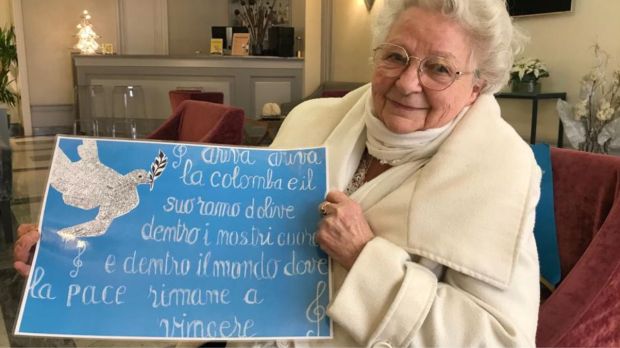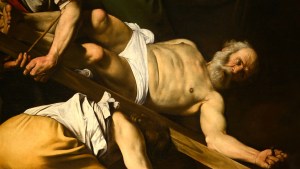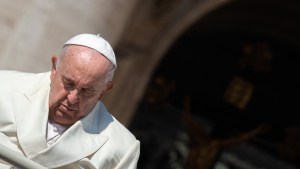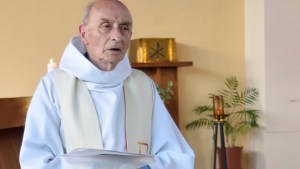“It was the most intense encounter I’ve ever had. What a privilege!” Moments after leaving the Vatican, Roseline Hamel still seems overwhelmed by her meeting with Pope Francis. For around 15 minutes this Wednesday morning, December 6, she was able to talk to the Pope about her “long road” of rebuilding begun since the tragedy of July 26, 2016. That’s the day her brother’s throat was slit while he was celebrating Mass at his little church in Saint-Etienne-du-Rouvray, Normandy.
Drawing strength from her brother’s example
“I needed to tell the Pope that seven years ago, when we were invited to the Vatican three months after the death of our brother Jacques, I wasn’t able to appreciate the privilege of approaching him. I was in a huge bubble of pain,” she confides.
So she explained to Pope Francis how she now draws her strength: from the strength her brother had when he died. “My brother recognized the malevolent spirit that troubled the minds and souls of his murderers. He said to each of them: ‘Go away, Satan.’ In this strength of forgiveness given before dying, I drank to find the path that keeps me standing,” she testifies.
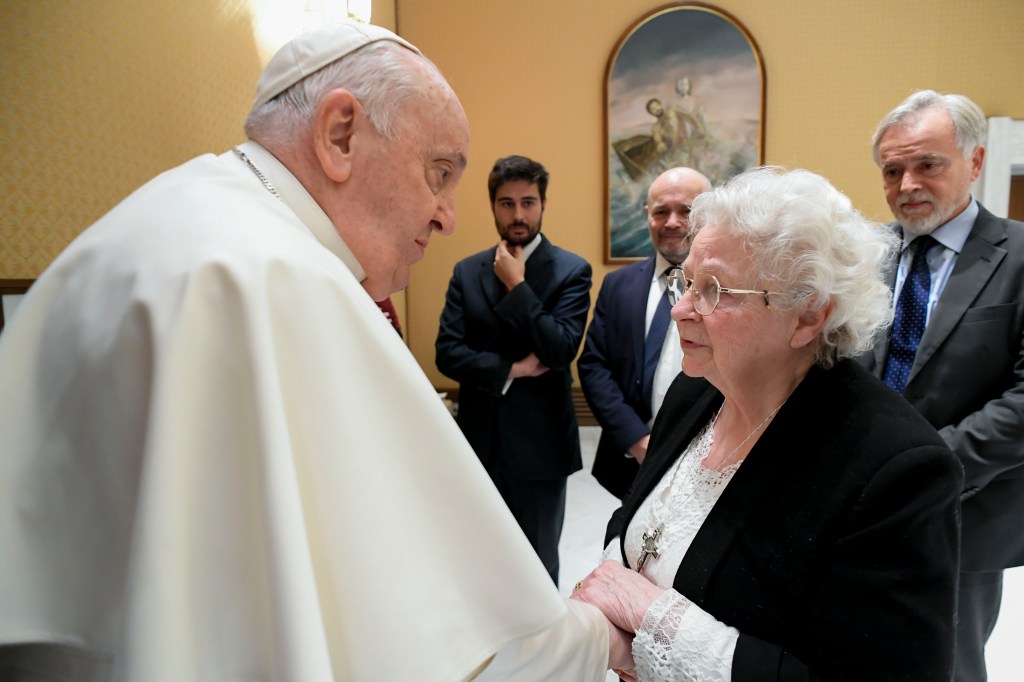
“The Pope replied that he understood my immense pain. And he thanked me for my words and my path,” says Hamel, still struck by Francis’ “soothing smile” and “benevolent gaze.” “All the more so as he was in very poor health,” she adds.
On this subject, Father Hamel’s sister didn’t hesitate to sympathetically reach out to the head of the Catholic Church. “Before he left and turned away from me, I put my hand on his shoulder and said, ‘Pope Francis, I’m just like you … I’ve only got one working lung left!’ And he laughed,” says the woman who prays to her older brother to intercede for the Pope’s good health. The soon-to-be 87-year-old Pontiff remained standing during the audience, supporting himself with his cane.
An exchange of gifts
During the meeting, Roseline Hamel was able to offer Pope Francis a few gifts, starting with a copy of a recently found homily her brother had written for the Easter season.
“Despite his age, my brother continued to write all his homilies by hand, on scrap paper,” she recalls. A full trunk was sent to Rome for her brother’s beatification proceedings.
“When I knew I could come and see the Holy Father, I photographed the homily I’d just found and enlarged the handwriting to give it to him,” says the octogenarian. She assures us that the Pope was “very, very, very happy” to receive this gift. “His thank you was truly grandiose.”
For her, every Easter is now associated with her brother’s tragedy. “I ache to think of the blood spilt at the foot of his altar. I equate it with Christ’s martyrdom.”
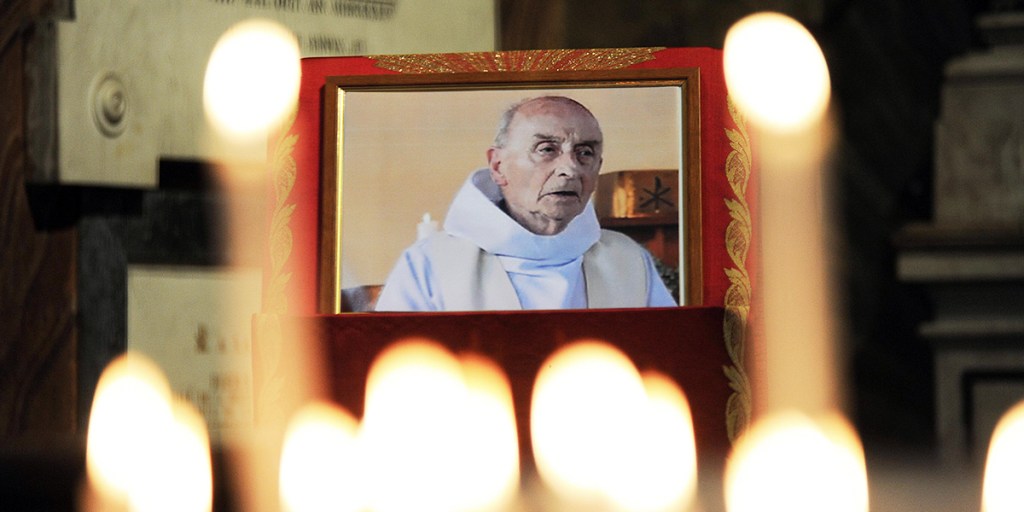
Hopes for the beatification
On the subject of his beatification, Roseline Hamel says she forgot to ask the Pope about the status of the process. However, she’s convinced that the photo of her brother she gave Francis will serve as a “little reminder.”
“I have hope that this beatification will come before I leave this world,” she says. The diocesan phase of the process was closed in 2019 and Rome has been studying the case since.
In front of the Pope, Roseline Hamel also sang the refrain she and her brother used to hum “when there was tumult” in world news: “May the dove with her olive branch come, come, in our hearts and in this world where peace is yet to be won.”
She presented him with a poster featuring the song’s lyrics in Italian, and a box of Mont-Saint-Michel cookies.
In this emotionally-charged exchange, Pope Francis blessed the cross Roseline wears, a cross her grandson brought her from Padua. “He put his hand on the cross. It was impressive.”
Meeting the family of the assassin
Prior to the audience, Roseline Hamel shared her personal journey after the tragedy, recounting her meeting with the family of her brother’s killer.
“This meeting came after a long year of meditation,” she recounted. “One day, I asked myself a question: ‘Who can suffer more than me?’ […] I thought: ‘If I were the mother of this son who became a young murderer and killed a priest, how would I suffer?’”
After first talking to the family on the phone, one day she and Archbishop Lebrun showed up in front of their home.
“His mother opened the door. She opened her arms to us, and she asked for forgiveness. I told her I hadn’t come to ask for forgiveness, but to propose that we deal with our sorrow together.”
